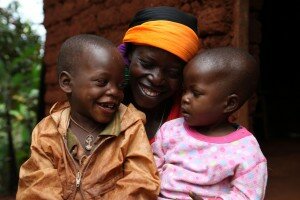The World Health Summit will take place next week from October 23-26 in Berlin, Germany. The Global Network’s Managing Director Dr. Neeraj Mistry will be in attendance. To promote the summit and advocate for NTDs, Dr. Mistry authored a blogpost for the ONE Campaign Germany. Find the English version below:
By: Dr. Neeraj Mistry, Managing Director of the Global Network for Neglected Tropical Diseases
 Two years ago, out in the farthest reaches of Burundi’s Rutana province, deep in terrain that could have been lush with agriculture, a community rejoiced. Its population had been plagued by river blindness, a disabling and blinding disease which is transmitted through the bite of a black fly. The flies come from the streams and rivers that keep the land fertile, making the water both a blessing and a curse. However, in 2009, Burundi’s ministry of health found this remote community and with the help of global health partners, delivered enough ivermectin to treat everyone in the area. Leonard Medina, the 37-year-old chief of the community, said that people are now returning to work, children are going back to school, and communities broken by genocide, civil war and disease are finally getting the opportunity to rebuild. Without the heavy burden of disease, the land and the people are getting their chance to flourish.
Two years ago, out in the farthest reaches of Burundi’s Rutana province, deep in terrain that could have been lush with agriculture, a community rejoiced. Its population had been plagued by river blindness, a disabling and blinding disease which is transmitted through the bite of a black fly. The flies come from the streams and rivers that keep the land fertile, making the water both a blessing and a curse. However, in 2009, Burundi’s ministry of health found this remote community and with the help of global health partners, delivered enough ivermectin to treat everyone in the area. Leonard Medina, the 37-year-old chief of the community, said that people are now returning to work, children are going back to school, and communities broken by genocide, civil war and disease are finally getting the opportunity to rebuild. Without the heavy burden of disease, the land and the people are getting their chance to flourish.
River blindness is in a group of diseases called the neglected tropical diseases or NTDs. Over 1 billion people around the world are affected by NTDs, most of whom live on less than $1.25 per day (US dollars). One in every six people globally has at least one of the seven most common NTDs. That means that every day, half a billion children are forced to go to school feeling tired and malnourished because of a common parasite infection that leads to blood loss and anemia. Millions of people are slowly losing their eyesight because of an infection that turns their eyelashes inwards, scratching their corneas each time they blink. Millions more are left disabled and disfigured by the swollen limbs and genitalia caused by another all too common parasite. These diseases stigmatize, disable and inhibit individuals from being able to care for themselves or their families—all of which promote poverty. Continue reading
